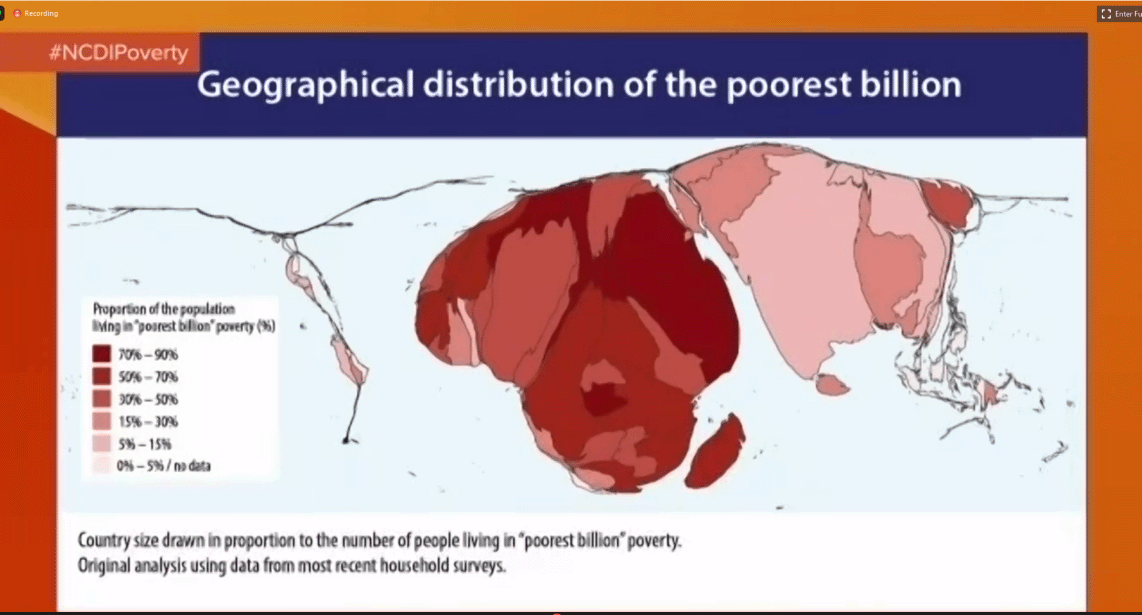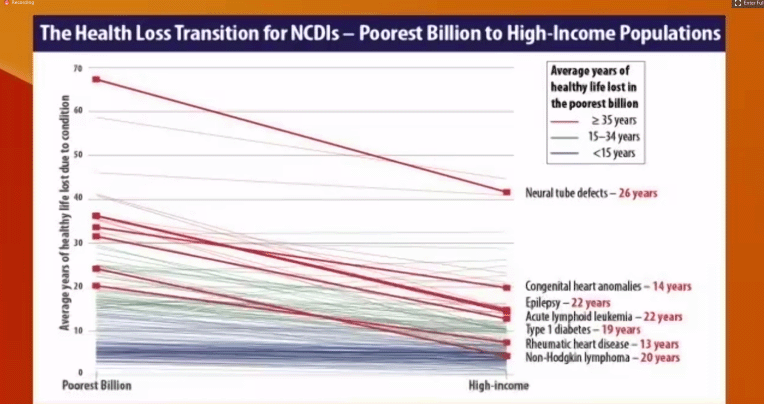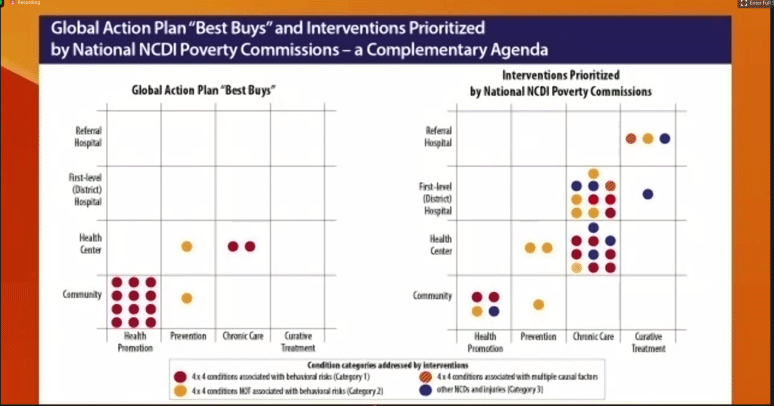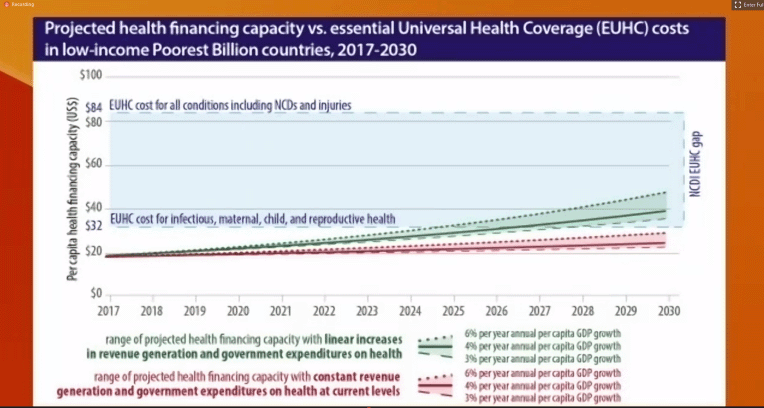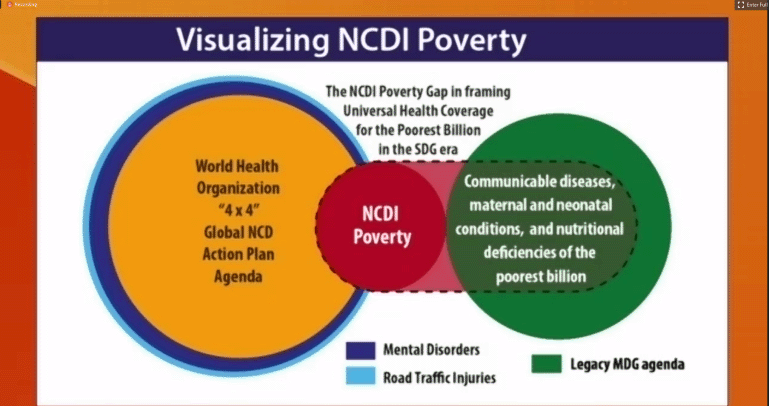5 September 2020
Obscene inequalities. Myths. Changes in government systems. “They tied me up and wanted to kill me.”
The Lancet NCDI Poverty Commission released a new report today on addressing NCDs and injuries (#NCDIs) among the world’s poorest 1 billion people (depicted in map).
One myth debunked in today’s presentation introducing the report is that people think NCDs, including heart disease, asthma, diabetes, cancer, mental health, and injuries, are not a problem in developing countries.
Another myth is that development aid has met health needs of the world’s poorest. As the graphic with 4 charts below shows, while funding for HIV and maternal and child health has reached $7B per year, funding for NCDs in the poorest billion countries is barely on the chart, i.e., barely $1M. Due to the focus on acute issues, a pregnant woman with HIV will get appropriate treatment while one with diabetes will not.
“A child with rheumatic heart disease is doomed,” one speaker said. Similarly, the man with psychosis, quoted at the top, was attacked and tied up by his community members; he is now receiving treatment, saying “I didn’t know I could recover.”
The years of healthy life lost due to NCDIs in the poorest billion is “obscene”, as the Health Loss Transition graphic below shows: 22 years for someone with epilepsy, 13 years for rheumatic heart disease, and 20 years for non-Hodgkin lymphoma. The international investment focus has been on health promotion at the community level (left side of Global Action Plan best buys grid below), while a much wider scope of interventions are needed (right side of grid), including district hospitals and health centers to treat chronic diseases.
As the funding gap graph below shows, even in the best of circumstances with a 6% increase in per capita GDP growth, the amount of funding for health care financing available would only be around $50 per capita—compared to the $84 needed for essential universal health coverage (EUHC).
More poor people are dying due to NCDs during #COVID19 due to lack of access to medical care, loss of income and higher COVID-19 risk due to having an NCD. Pakistan responded by making millions of dollars available to provide “half the country” with a $75 income supplement; people were told to send their national ID number by SMS, so government officials could verify their eligibility and send the funds.
COVID-19 has brought such positive changes in government systems and collaboration between health care entities that can be harnessed going forward. In addition, health care systems need to re-orient from acute to chronic care.
#LancetNCDIPovertyCommission #NCD #health #healthcare #socialjustice #poverty

